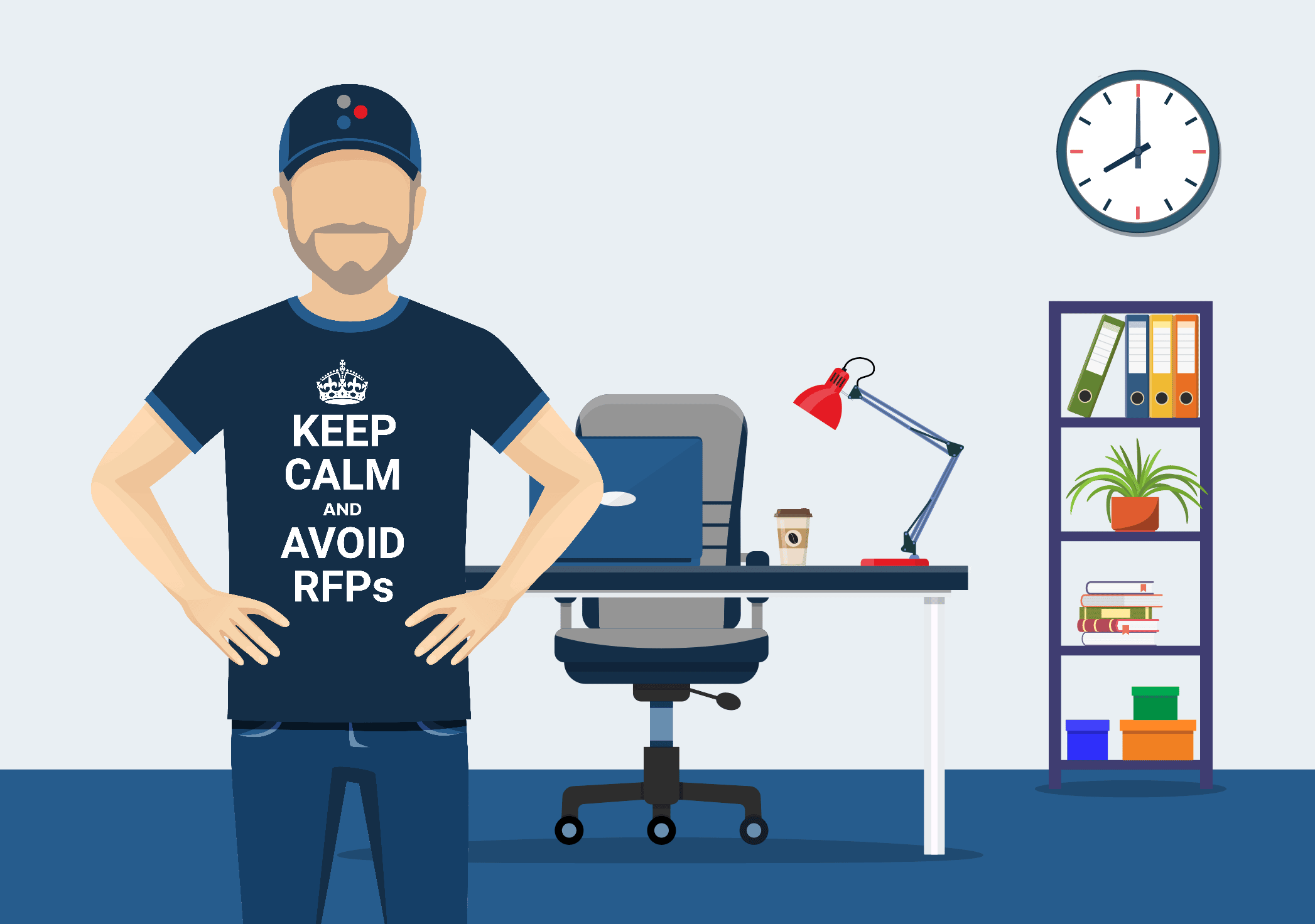
Avoid FOMO in 2023:
What You’re Missing out on without Cooperative Contracts
Ever heard of FOMO, the Fear of Missing Out? It’s something kids say today, usually regarding something seen posted by influencers on Instagram, TikTok, or other media platforms. But did you know that too many government fleets ARE missing out on stretching their purchasing power and creating a more efficient, effective contract bidding process?
To discuss these issues, we recently conducted a webinar titled, “Power over Pain: What You’re Missing Out on Without Cooperative Contracts.” This blog explores key topics from the webinar and explains how to avoid FOMO and be a fleet influencer in 2023 with cooperative contracts.
Mo’ RFPs, Mo’ Problems
Do you hate RFPs? In conversation or through surveys, GPS Insight has heard “yes” much more often than “no” in response to this question, and we’re yet to hear anyone say “I LOVE RFPs!”
Let’s face it, RFPs are tedious, time-consuming and repetitive. They require a lot of labor and often take weeks or months to complete. Time and again, we hear that they take too much work and limit options.

When government fleets submit an RFP, some suppliers don’t even bother to bid because they know the margins won’t be a good fit or provide a return on the effort to craft the RFP. In those cases, the agency is stuck with whoever submits bids. Another troubling factor is that not enough vendors are putting in bids. Due to lingering supply chain issues, government fleet managers are experiencing the unprecedented: suppliers are making more sales than they have things to ship. Suppliers simply haven’t been responding to the traditional bids like they used to.
If you’re going out to bid and you don’t get the responses in, the whole program must start over again. So, if a government fleet manager is hoping to get a specific piece of equipment in a couple of months and the competitive process fails because they didn’t receive enough responses, it pushes the time back that much further to get critical equipment.
How Cooperative Contracts Work
How do cooperative contracts work? A cooperative contract completes all the same steps as your procurement team would complete if you were doing this bid yourself. The only difference is the cooperative contracts are good across the country. One contract is designed that is good for four years that can be utilized by awarded suppliers and dealers as part of their dealership network.
They provide more flexibility and are ready to use. If you have the money in your budget, you can go out this afternoon and buy a half-million-dollar piece of equipment. If your council has approved the purchase and has approved the contract and you’ve got the money in your budget, you can go out and make that purchase, which is not the case in a bid situation.
Through cooperative purchasing contracts, government organizations can perform greater advance diligence, interview potential vendors, participate in product demos with vendors, or even conduct pilots long before the writing of the document stage. They already know that the participating vendors have been vetted and approved through a cooperative contract and are potential viable candidates to provide them with a product, so it helps them select the best vendor.
Maximizing Purchasing Power
You’d think governments always get the best deals on equipment…but government fleet managers know that is not the case. When government fleets submit an RFP, some suppliers don’t even bother to bid because they know the margins won’t be a good fit. In those cases, the agency is stuck with whomever submits bids. Furthermore, sometimes, government organizations aren’t allowed to consider value and quality, and some laws require use of the lowest bidder.
There are, however, ways fleets can stretch their buying power. Some government agencies band together in multi-agency co-op arrangements. As a collective, they can make taxpayer resources go further. For example, a company bidding for seven fleets might be more motivated to cut a better deal than they would for just one fleet.
With cooperative contracting, the pricing structure is also more advantageous to the buyer. The pricing is available in accordance with the obligation of the seller as a participating vendor, there is a shorter time frame to deployment, better pricing, and the backing of a known entity makes a cooperative purchasing option a winning combination for government agencies.
Cooperative contracts also streamline the RFP process, which takes a lot of labor and are extremely time-consuming…often taking weeks or months to complete. Through cooperative purchasing contracts, government organizations can perform greater advance diligence, interview potential vendors, participate in product demos with vendors, or even conduct pilots long before the writing of the document stage.
Why Cooperative Contracting?
What is the most appealing part of cooperative contracts? Less work, faster purchasing, competitive pricing, and quickly getting what your fleet needs.
One of the biggest advantages of cooperative contracts is savings. Take for example John Deere, which has 1,900 dealerships across the United States. Imagine if the company had to put an RFP in every time it wanted to sell a piece of equipment! They would have to create 50,000 to 100,000 proposals each year. However, with one cooperative contract they can use throughout the country, the entire process is simple, efficient, and fast. And by streamlining that process, it allows them to lower the prices on what they offer to consumers and to government agencies.
Cooperative Contracts Continue to Grow
Total spending through cooperative contracts continues to grow about 30% per year, and the impacts of the pandemic have only increased public agencies’ desire for more competitive pricing on contracts. Cooperative contracts allow agencies to combine their purchasing power to gain leverage during negotiations. Government agencies now understand how useful cooperative contracts are when staring down uncertainty.
Don’t miss out in 2023. Cooperative contracts can help you maximize your purchasing power and create a simpler, more efficient and effective contract bidding process that saves time and money.





